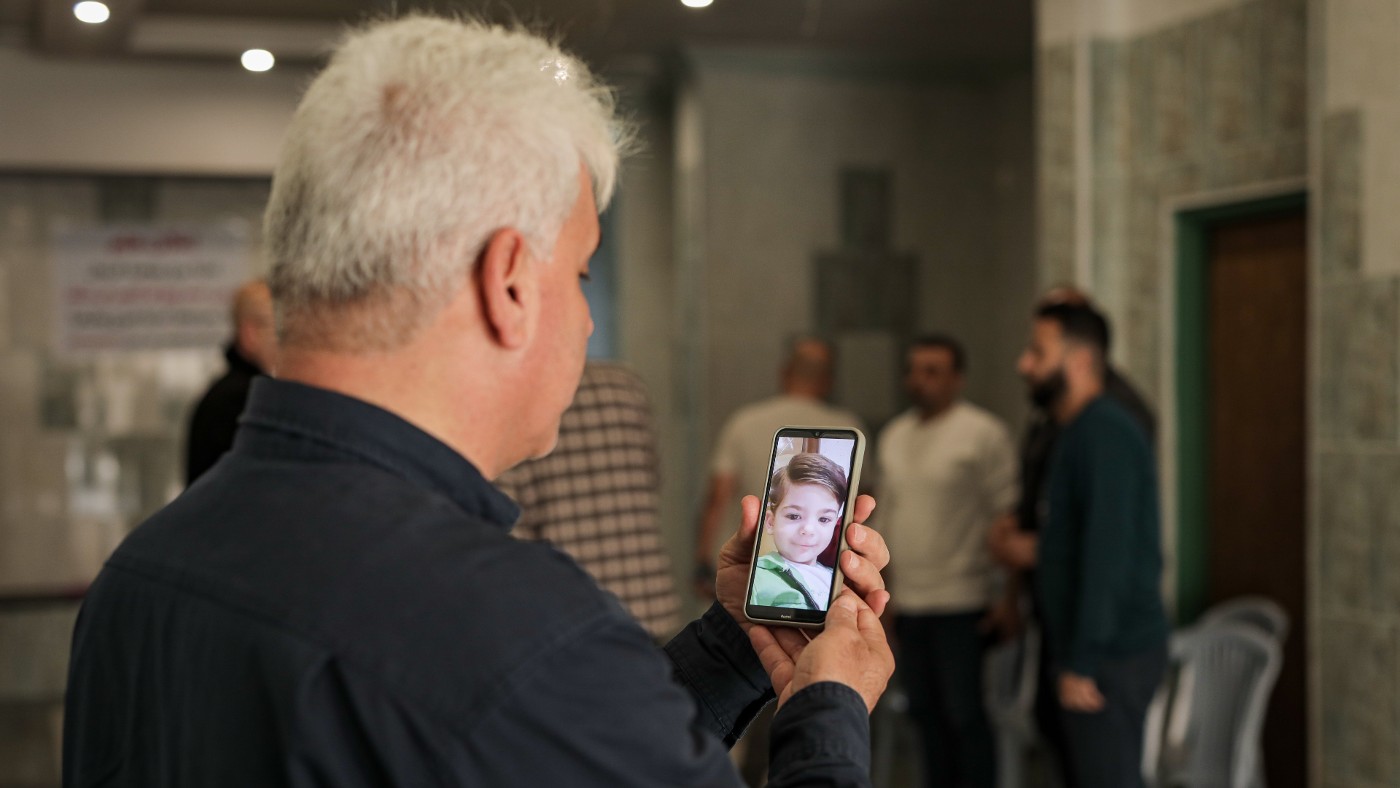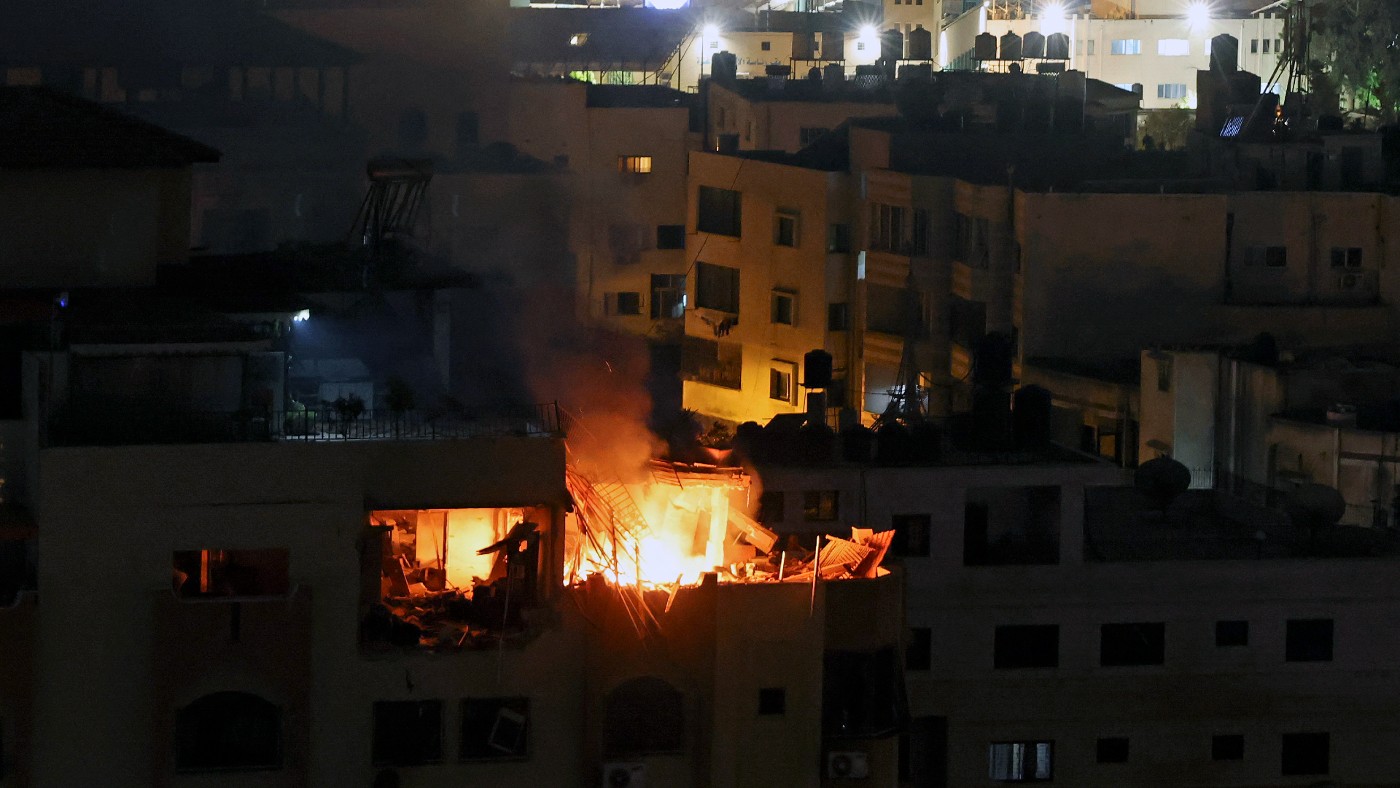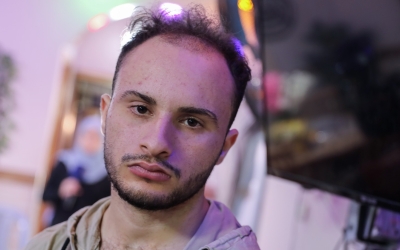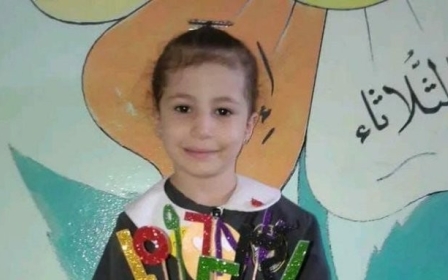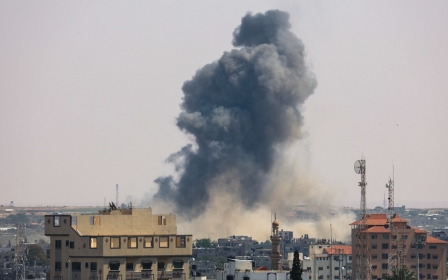Gaza: Palestinian boy dies after panic attack from Israeli bombing
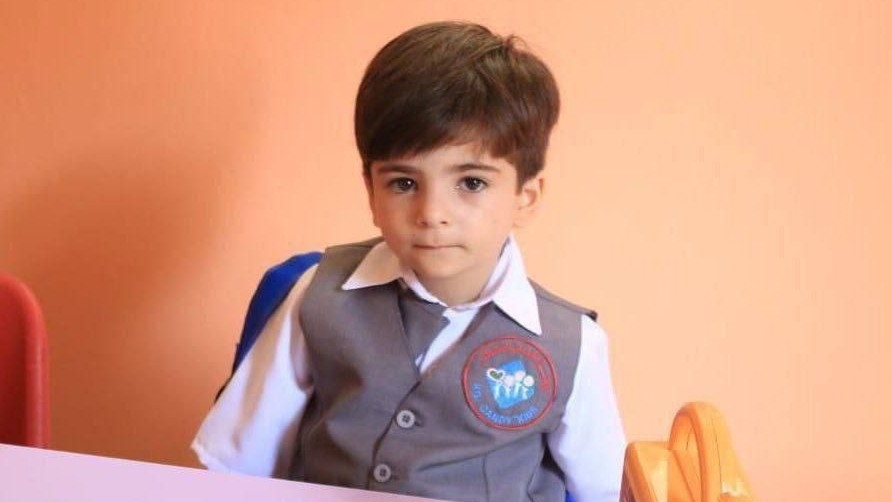
On Monday night, Tamim Daoud, a four-year old Palestinian boy, went to bed at home in al-Remal, a neighbourhood in the centre of the Gaza Strip.
Daoud, who was eagerly awaiting his fifth birthday next month, was woken along with his family at 2am by the sound of Israeli bombs.
“My son Tamim was sleeping when an Israeli air strike targeted a residential building near our home,” Mohammed, the boy’s father, told Middle East Eye. “He woke up frightened and terrified.”
The sound of the bombing was deafening, and even after the air strikes had finished the Daoud family’s building still reverberated. Windows had been shattered. The neighbourhood was blasted apart.
Tamim wept heavily. He was having a panic attack. His mother Lina, 29, who is eight months pregnant, tried to soothe him back to sleep but the boy continued to cry. He grew short of breath, gasping desperately to take in air.
New MEE newsletter: Jerusalem Dispatch
Sign up to get the latest insights and analysis on Israel-Palestine, alongside Turkey Unpacked and other MEE newsletters
In the end, Tamim returned to sleep. But about five hours later, he began to struggle again. He experienced another panic attack.
“I rushed him to the hospital,” his father said. “But his heart stopped functioning on the way there.”
At the hospital, Tamim received medical treatment, but his heartbeat was very faint. “My son was admitted to the intensive care unit. The doctors told me that he died at dawn,” Mohammed told MEE.
The father paused. “My little son’s heart could not bear the horror of the bombing.”
Life under attack
As of Thursday morning, 26 Palestinians and four Islamic Jihad (IJ) commanders had been killed, and 76 people injured in the latest round of Israeli attacks on Gaza, according to the Palestinian health ministry and the Israeli millitary.
At least five children are among the dead.
Twenty-five Israelis have been injured in rocket attacks launched by Palestinian IJ in response to the air strikes.
Born in the “largest open-air prison in the world”, Tamim’s life short life was marked by violence from the start.
When he was just six months old, he underwent open-heart surgery in the occupied West Bank.
In order to maintain the health of his fragile heart, he took medications including furosemide and captopril.
Last year, on 17 December, the four-year-old travelled to Israel to have his health condition evaluated. In order to travel in and out of Gaza, residents have to apply for an exit permit to leave the besieged coastal enclave.
“As Tamim's grandmother was the only person who had been granted an exit permit from the Israeli authorities to accompany him, she travelled with my son,” Mohammed said.
A thorough medical assessment was undertaken and Tamim was found to have made significant improvements.
The doctors decided to discontinue his previous course of treatment. However, after the treatment was stopped, Tamim's health took a turn for the worse, and it soon became clear that the change of plans had been a mistake.
“We resumed treatment and thank God his health showed significant improvement once again, but Israel decided instead to kill my son in cold blood,” Tamim’s father told MEE.
Eight-year-old Judy is Tamim’s only sister and her brother’s death has left her feeling empty and alone.
“I am worried about the coming days and about how Judy will cope with the absence of her brother and close friend,” Mohammed said. “Despite her grief, Judy is a source of strength to her mother and me.
"She supports us, as she is also fearful of losing us too and she becomes anxious when her mother cries,” the children’s father said.
Lina, the children's mother, could not believe it when she heard her son was dead. She continued to insist that he was alive and would return to his family. Surely, the heavily pregnant Lina thought, Tamim would be around to meet his new brother.
“I gathered our relatives to support her before telling her the news of Tamim’s death,” Mohammed said. “We can’t believe that he will not meet his expected brother.”
No place of safety
Layan is only nine years old but she has already lived through four conflicts. The Palestinian girl from Gaza lives at home with her parents and two brothers, Saleh, 12, and Yamen, seven.
When the latest round of Israeli air strikes hit a residential building near her home, she was filled with a familiar sense of dread and anxiety.
“I was sleeping, and suddenly I woke up to the sound of shelling. I leapt out of bed and raced towards my father,” she told MEE of the first moments of the bombings this week.
Layan's voice trembled as she described the scene that faced her. “I saw the fire in front of me, it was really scary,” she said. “The electricity was cut off, and I was only able to see darkness, but I know my way around the home, so I was able to find my way to my parent’s room.”
'I want to show the world what the children of Gaza have been enduring'
- Layan, aged nine
Memories of the 2022 assaults on Gaza came flooding back and she feared that she would go through the same harrowing experiences once more.
On 5 August last year, a Friday, Israeli missiles targeted the Palestine Tower, which is very close to Layan’s home. The impact shattered the glass window of her bedroom, sending shards of sharp debris flying and upsetting her belongings, including her treasured toys and sketchbook.
“I was terrified,” Layan said. “It was the scariest moment of my life.”
These feelings of insecurity have a huge impact on the psychological well-being of Gaza's children.
"Without a sense of safety, one's social and occupational functioning may suffer, and their ability to learn may be impaired," said Muayad Jouda, a psychiatrist at the Psychiatric Hospital in Gaza.
“Children are inevitably affected by the impact of Israeli aggression, the escalating violence, the proliferation of images of casualties and destruction, and the constant sound of explosions,” Jouda told MEE.
“Children may exhibit symptoms such as extreme anger or persistent crying and screaming. They may talk about the war continuously. They may even resort to playing violent games.
"Their fear of being alone may increase, leading to a refusal to sleep on their own. Additionally, they may suffer from colic and other physical pains.”
Fear and hope
The initial attack of 5 August 2022 killed ten people, including Tayseer al-Jabari, a military leader of Palestinian IJ. The youngest Palestinian killed was a five-year-old girl.
By the time the Israeli assault finished on 7 August, 49 Palestinians, including 17 children, had been killed.
When Layan’s family and neighbours heard the bombs, they moved quickly to evacuate their building. “We all ran away to safety,” she said.
“I am brave and strong, but the sound of the bombing still caused me tremendous fear and anxiety. My knees ache with pain every time I hear it,” the nine-year-old said.
When she grows up, Layan dreams of becoming a renowned painter.
“I want to travel, to be able to sketch beautiful landscapes, instead of the devastating view of the still-destroyed Palestine Tower,” she said. “But I also want to depict the remnants of the war and destruction, to show the world what the children of Gaza have been enduring.”
The Palestinian girl hopes the war will end as soon as possible. She keeps monitoring the news, unable to sleep peacefully until she knows whether the aggression has come to an end.
Right now, she sleeps with her family in the corridor of their home because that is where they think it is safest.
“I'm not just scared for myself, but also for my family and friends,” Layan said. “Once there is a ceasefire, I want to see my beloved friends Sama and Ghadeer.”
This article is available in French on Middle East Eye French edition.
Middle East Eye delivers independent and unrivalled coverage and analysis of the Middle East, North Africa and beyond. To learn more about republishing this content and the associated fees, please fill out this form. More about MEE can be found here.


